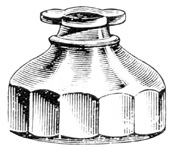
The “New Spirituality” & the Ghost of Catholicism
THE DELETERIOUS EFFECTS OF A SUBTLE INVERSION
One of Hollywood’s more sybaritic starlets solemnly announced the other day that she was embarking on a 30-day “spiritual cleanse” in India. Since neither ecumenism nor eco-enthusiasm is my métier, I was bewildered. Could it be some novel gnostic excrescence? Or a 21st-century variation of Stoic apatheia? Perhaps a new twist on commonplace pantheism? Knowing Hollywood, it is more likely some terribly au currant exercise in self-absorption. No doubt it is that epiphenomenon of modernity — namely, being spiritual without being religious. But without religion, the spiritual is a vain voyage into the self. Common error sees the spiritual as merely the non-physical. That is like saying a Titian painting is merely the absence of white. But that is missing the fuller picture — in fact, missing it entirely. When “spirituality” departs from the moorings of religion, it becomes anything that suits one’s taste. Beware of those “who say they wish Christianity to remain as a spirit,” Chesterton once warned, for “they mean, very literally, that they wish it to remain as a ghost.”
This parlous error is not confined to the pampered denizens of Hollywood. It has long taken up residence in the Church herself. No surprise, as it is the softer side of the hard-knuckled modernism that has been pummeling the Church for over one hundred years, reappearing now with a greater virulence than ever. What are its signs? A conspicuous absence of doctrine, a decided tincture of Freudian/Rogerian self-stroking, a marked identification of “spiritual progress” with self-aggrandizement, a thinly veiled contempt for the Catholic tradition of striving for perfection, a studied attempt to reconfigure a Catholic figure — when admitted of mention at all — such as attempting to make St. Catherine of Siena or St. Julian of Norwich the antecedents of feminism, or even the Virgin Mother for that matter.
This “new spirituality” litters the contemporary Catholic landscape, leaving any naïve Catholic searching for God engulfed by its ideology. Its tribe suffers no lack of handsome facilities, usually identified as “spirituality centers,” a Huxleyan term the irony of which is lost on its partisans. Those are essentially therapeutic depots with a thin veneer of Christianity, monuments to what sociologist Philip Reiff called “the triumph of the therapeutic,” in a book of the same name. Visitors are greeted by practitioners wearing carefully affirming smiles with a Potemkin village manner. All of it a genteel descent into a Dantean demimonde.
You May Also Enjoy
Liberal Catholic theologians cannot brook dissent from their own way of thinking. They won't debate subjects they consider long settled, and will resort to censorship to silence dissent.
Dissent has long been noisy, abrasive, and antagonistic. Dissenters seldom pause long enough to consider that they may be in error.
Pseudo-mystical phenomena have occurred in cases of seemingly pious individuals who are unwittingly tricked by demons, sometimes for years.

